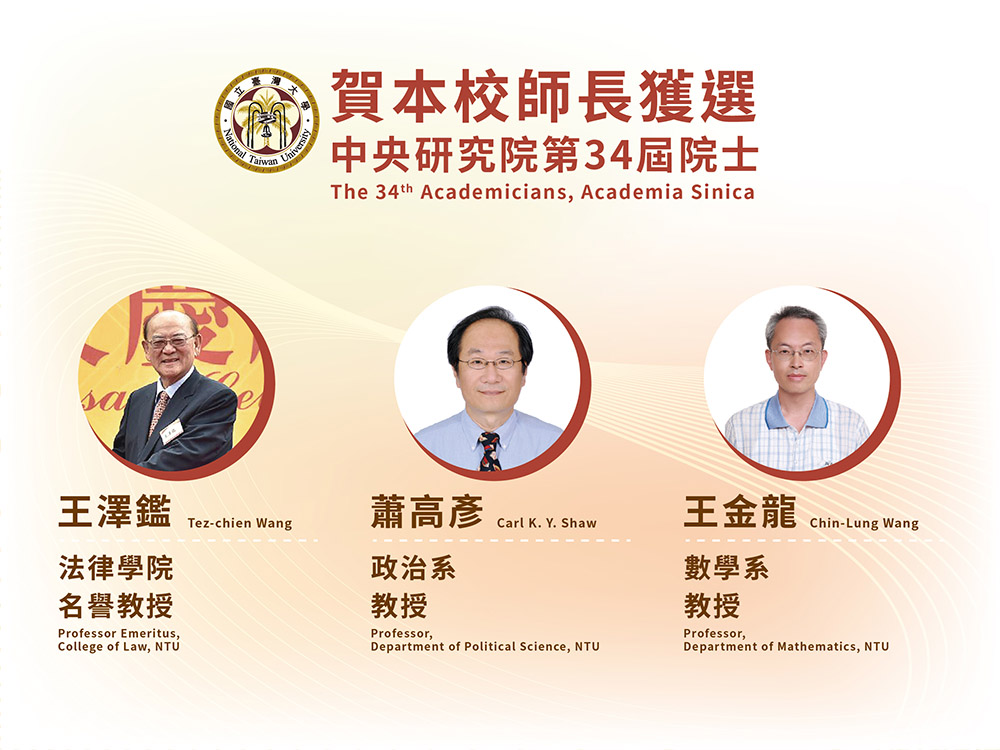
NTU Opening Ceremony: “Where Creativity and Dreams Take Flight”
瀏覽器版本過舊,或未開啟 javascript
請更新瀏覽器或啟用 javascript
Spotlights
Diagram of ESM1 Action in Prostate Cancer Stem Cell.
Photo of the Research Team.
Wnt/β-catenin signaling pathway is one of the fundamental mechanisms related to cell proliferation, stem cell pluripotency, and cell fate determination during embryonic development and tissue homeostasis. As a result, activating mutations in this pathway are often linked to human birth defects, cancer, and other diseases. Increasing evidence has indicated that dysregulation of the Wnt/β-catenin signaling may contribute to the development and progression of cancer. The mechanism that activates Wnt/β-catenin signaling may be different for different cancer types. Activating mutations in Wnt/β-catenin signaling are quite common in most cancer types, but not in the advanced prostate cancer. This phenomenon may suggest that other regulation strategies of Wnt/β-catenin signaling may exist in the advanced prostate cancer. A research team led by Dr. Kuo-Tai Hua (華國泰) from the Graduate Institute of Toxicology at NTU has found a protein named endothelial cell-specific molecule 1 (ESM1) to be positively associated with carcinogenesis of the prostate cancer. The ESM1 mislocalization leads to an induction of Wnt/β-catenin-related cancer stemness and further contributes to the aggressive features of the prostate cancer. The research results have been published in the prestigious journal EMBO Journal in February 2021.
ESM1 is originally identified as a circulating proteoglycan. This report is the first one to demonstrate aberrant subcellular localization of ESM1 in the nucleus. After observing this unexpected finding, the research team hypothesized that nuclear ESM1 would promote the more aggressive features of the prostate cancer. Experimental results showed that the nuclear ESM1 interacted with β-catenin to stabilize β-catenin/TCF4 complex, thus supporting prostate cancer stemness. With an in vitro model, the research team had shown the therapeutic potential of targeting ESM1 to interrupt the ESM1/β-catenin/TCF4 interaction in metastatic prostate cancer. These findings might be helpful in the future drug design strategies of the novel targeted therapy for the advanced prostate cancer.
The translocalization of proteins is fundamental for proteins to exert their specific functions in different cellular compartments. The research team demonstrated what happened after the aberrant ESM1 protein localization and how this phenomenon lead to irretrievable consequences. Since the Wnt/β-catenin signaling is frequently activated in advanced prostate cancer and related to tumor metastasis and therapy resistance, finding a novel target to block this pathway is imperative for tumor control. The research team has established the significance of mislocalized ESM1 implications for the potential use as a candidate therapeutic target in advanced prostate cancer.
The first and corresponding authors of the research article were Ke-Fan Pan (潘可梵) and Kuo-Tai Hua from Graduate Institute of Toxicology at NTU. The research team included Wei-Jiunn Lee, Chun-Chi Chou, Yi-Chieh Yang, Yu-Chan Chang, Ming-Hsien Chien, Michael Hsiao. The research was supported by NTU and the Ministry of Science and Technology.
For more detailed information, please refer to the journal article.
https://www.embopress.org/doi/full/10.15252/embj.2020105450

NTU Opening Ceremony: “Where Creativity and Dreams Take Flight”

Prof. Wei-Shiung Yang wins MOE National Excellent Teacher Award

NTU College of Public Health's Global Health Program Joins the Association of Schools of Public Health in the European Region

NTU hosts a successful dg.o 2024

Congratulations to NTU faculty members elected as 34th AS academicians
Current Spotlights